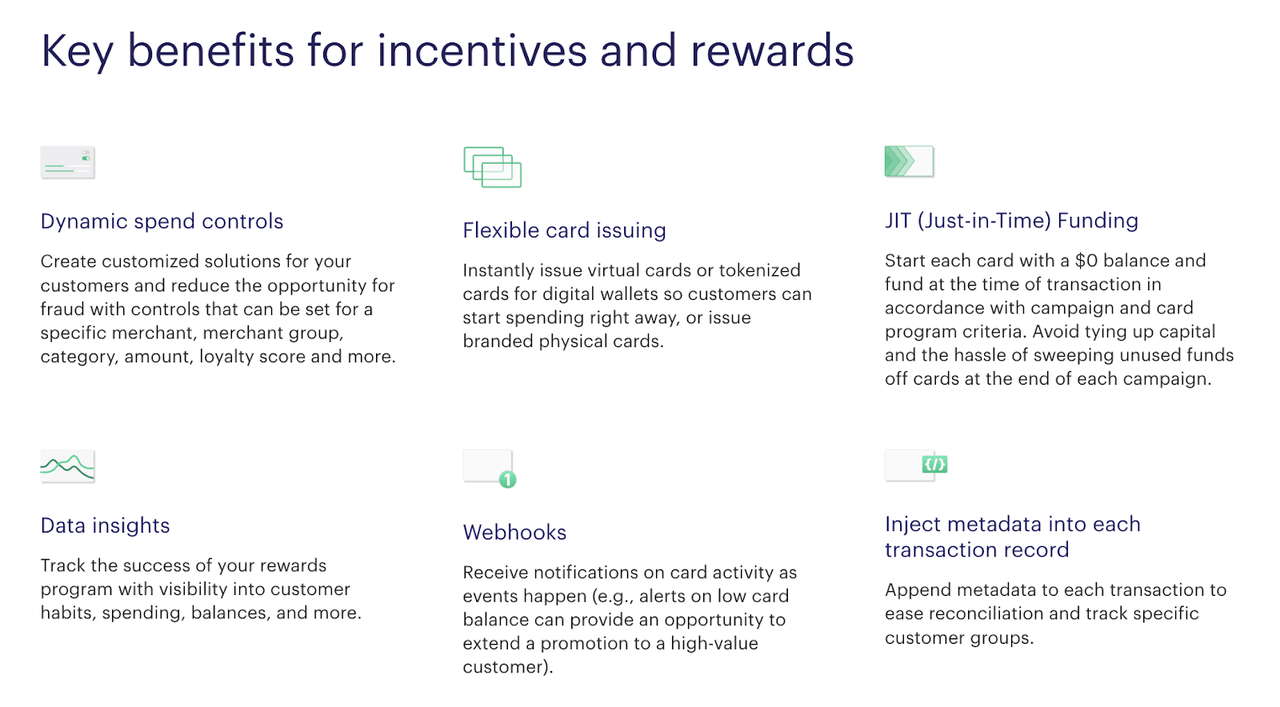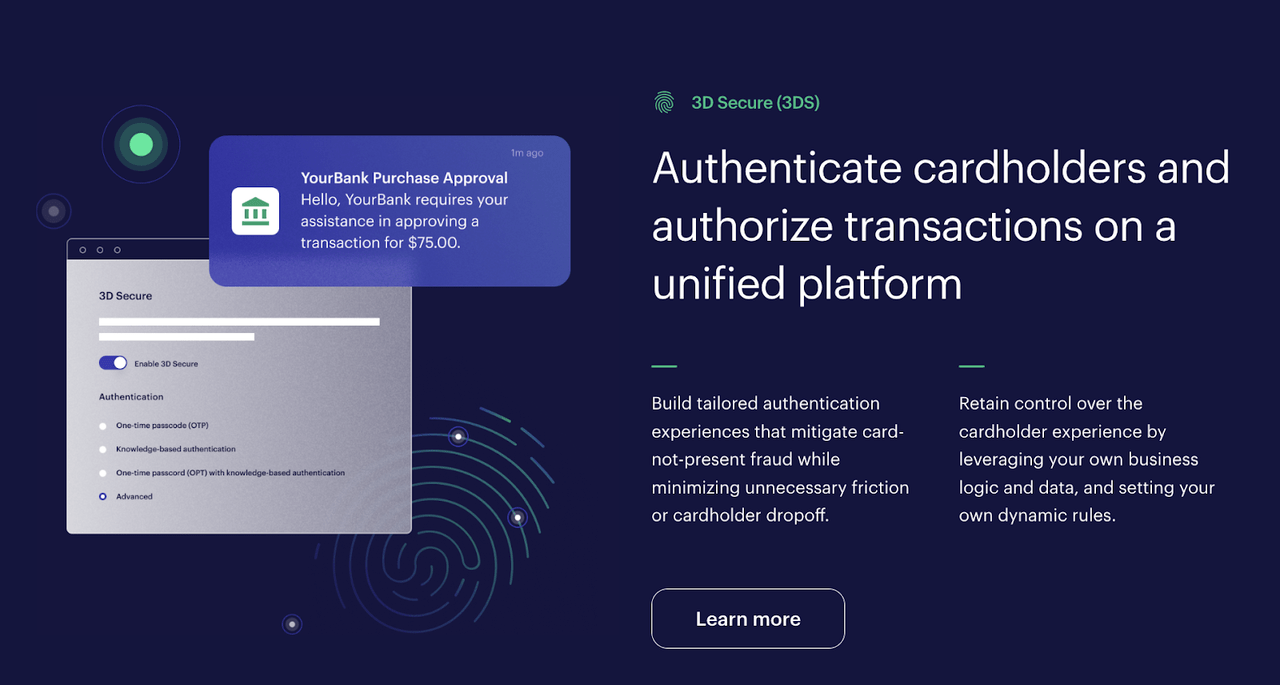Funtap/iStock via Getty Images
Investment Thesis
In last week’s Leaders in Lending podcast, Jeff Keltner was joined by Randy Kern, Marqeta, Inc.’s (MQ) Chief Technology Officer. Kern joined Marqeta in June of last year and he boasts an impressive background, working at Microsoft (MSFT) for nearly 20 years and then Salesforce (CRM) for seven years. It was great to hear from Kern, especially since it was a BTM request to get him on the Leaders in Lending podcast!
To be sure, the episode did not disappoint! Below is the episode link if you haven’t already had the opportunity to listen or you can find the episode in your podcast app.
Upstart Holdings, Inc.’s (UPST) Leaders and Lending podcast series is a show for lenders who want to improve their go-to-market approach and improve their consumer lending programs. For this note, I will share some of the interesting takeaways from the conversation and relate them to some of Marqeta’s current customers, specifically Affirm (AFRM).
Upstart is an AI. It is an AI that underwrites all types of liabilities using a wide abundance of data to create assets. Upstart does lending whereas Marqeta does payments, but both companies depend on the flow of data in the open banking paradigm to democratize financial services.
It made sense for Upstart to have someone from Marqeta join the Leaders in Lending podcast because Marqeta enables lenders like Affirm, Klarna, and Afterpay to extend credit at the point of sale (POS) based on individual transactions to allow these lenders to create differentiated lending experiences while optimizing the flow of data.
In a recent note, we discussed, How Can Legacy Banks Keep Up With Open Banking, in which I discussed a Leaders in Lending podcast featuring First National Bank of Omaha (“FNBO”) (FNBO is a subsidiary of First National of Nebraska) (OTCPK:FINN). Last December, FNBO also partnered with Marqeta to enable its customers to issue credit card programs using Marqeta’s modern card issuing platforms which enables issuers to leverage transactional and alternative data at the POS. FNBO also partnered with Upstart in 2019, and as Upstart extends its product road map to smaller loan sizes, FNBO could very well leverage Marqeta’s modern card issuing platform to deploy Upstart’s underwriting for everyday purchases and underwriting individual transactions.
Introduction
Before we begin, I’ll share this comment from Kern describing the process that Jason Gardner, Marqeta’s CEO, went through in finding product-market fit and ultimately building something that layers upon the current payment networks”
Jason Gardner, started the company about twelve years ago and the idea was putting sort of consumer group on coupons on the card and that’s about as far afield of a normal sort of credit card or debit card payment scenarios you could imagine. And yet, by bringing the kind of concepts of modern card issuing and processing, so as they were able to have this sort of much more modular, much more extensible, much more disruptive sort of brain if you will, leveraging the existing payment network and all the reach and all the scale and all the kind of security of that brings. You kind of get the best of both worlds.” – Randy Kern, Leaders in Lending Podcast
Marqeta pioneered modern card issuing, and part of the reason that we are so fascinated by cards and modern card issuing is the popularity and simplicity of payment cards. Credit and debit cards have arguably one of the best user interfaces because it’s incredibly simple for users to swipe or tap a card at a payment reader, and it is becoming increasingly easier for consumers to integrate these payment cards into mobile wallets.
Payment cards have been in circulation for more than 50 plus years. Marqeta is fundamentally innovating the issuing processing space by enabling its customers to leverage the latest modern card issuing technology to improve the end-user experience and create more inclusive, profitable lending programs.
Rewards Help Unlock Financial Freedom
What really stands out from the episode is that better technology (APIs, webhooks, etc.) and more transparent lending protocols create much more inclusive financial experiences for everyone. Marqeta enables disruptors and innovators to launch new card programs so that financial institutions or commercial entities can launch card programs with very differentiated consumer experiences.
This is leading to buy now, pay later, and a bunch of folks in this space, Klarna, Afterpay, Affirm are examples of our customers who really provide a very, very different experience for the consumer at the point of sale.
No longer do you have to have this sort of big arduous credit line process that’s now detached from actually make it to purchase or kind of using your line of credit day to day.
Now these are kind of connected in ways through that dynamic environment, through the kind of real time nature of modern card issuing in processing, the ways they never could be before. And the last thing I’ll highlight is there’s really interesting ways to do very real time and very dynamic either funding sources, you know, looking at Crypto as a source of funding, or Crypto as a kind of indicator of credit worthiness or kind of funds to cover and what to point out rewards as well. You know, the fact that there’s a real time API and a real time interaction with the Card Network, the point of sale, Marqeta is the issuer processor and our direct customer. It just allows so much more innovation in terms of how you want to track and reward and manage this entire experience.” – Randy Kern (emphasis added).
Marqeta
Marqeta plays an important role in enabling financial institutions like FNBO to launch card programs, but fintech and tech disruptors as well. Affirm rewards will be a pivotal component to its ability to gain traction amongst consumers, and Affirm will leverage Marqeta’s real-time rewards API, which enables Affirm to offer tailored rewards that benefit consumers and merchants.
Today, our product works online offline, but mostly online, and we deliver these really great experiences that are low friction, very quick in instantaneous approvals that drive outsized results for the merchants in the e-com context. And then we are okay offline. We have solutions that work, and it’s not a material part of our business. But it doesn’t have the magic that the online experience has.
And if you think about it, 70% plus of commerce is still being conducted offline. And the reality is until the industry until Affirm figures out a way to create – really create offline experience, we’re not going to move the needle there but plenty of growth to do online too. But in the offline context, this is just such a huge opportunity for us. And we really think about it today as the best way to repeat on Affirm. So we’re going to think about rolling out the product carefully and thoughtfully, extending the card to our best repeat users. And what that means is these are no Affirm, they know our value proposition, and we know that. We know the kind of risk that we’re taking with that consumer and we’re going to start there.” Michael Lindford, Affirm CFO (emphasis added).
Rewarding consumers when they use Affirm’s everyday financial products will be vital for Affirm to gain widespread adoption amongst consumers. Affirm could very easily offer enhanced rewards to encourage people to repeat on Affirm. I expect that Affirm merchants will also be inclined to launch reward programs associated with Affirm as they seek to benefit from increased AOVs, higher conversion rates, and new potential repeat customers.
Ultimately, these trends will result in better promotions and rewards for consumers, where your wallet is on your phone and notifies you when your favorite groceries, accessories, or even luxuries go on sale or are promoted so that every consumer’s financial products are tailored to their financial position and previous tendencies. This creates a product where consumers build better visibility between what they borrow and their finances.
Less Fraud Leads To Better Experiences
Under the ideal circumstances, companies would approve each and every person who’d pay back what they borrow, and where unworthy borrowers would be denied. Below is Keltner’s description from the podcast.
One of my one of my co-founders, Paul, sometimes says like every dollar of interest a consumer pays above the basic cost of funds is done because of inefficiency in the system. Right, like if we had been smarter about making a decision and hadn’t suffered losses as we could all be charging. We wouldn’t be approving transactions that are going to be repaid or that are fraudulent, and everybody would be paying the you know, the federal funds right on all their borrowing because there’d be no losses. And we’re so far from that and I think sometimes we lose the picture of how much the world can get better for consumers as well as lenders when we get better at making these determinations.” – Jeff Keltner
Removing bad actors and promoting more good actors – It’s all about putting as much of the funds in the system towards approving as many transactions as possible. By removing bad actors, there are more funds to reward healthy consumer behavior and create better customer experiences.
Fraud and risk management are critical and Marqeta’s recent launch of RiskControl further cements its platform in its customers’ go-to-market approach. More on RiskControl can be found here. Marqeta’s real-time decisioning allows its customers to bring its fraud and risk management to the transaction level. In the podcast, Kern acknowledged the benefits of sophisticated risk tools that give Marqeta customers more flexibility to customize their card programs.
Marqeta: Risk Control
Better risk controls result in better card programs that enable companies like Affirm to deploy advanced risk management and leverage a variety of traditional data points to create better experiences for their customers.
We get to approve transactions, taking onboard all of that data that we have. And one of the signals we look at is the time of day. And it turns out that people at 2 o’clock in the morning are higher credit risk than people at 2 o’clock in the afternoon. And that’s a – that doesn’t drive outsized results, because not a lot of applications happen at 2 o’clock in the morning. But when they are happening there, it’s a higher risk transaction. And we, as a transaction level approver, can be a little bit more careful about the credit that we extend in those times, because it’s very possible that consumer doesn’t really understand at that moment what it is that they are taking on board. And that kind of signal is something that we can bring into our models in addition to enriching the data that you see on the consumer with respect to their credit bureau file and all of the different obligations that they have.
And we have taken the view from Day 1 that we are going to do that underwriting thing for all of our transactions. And so we look at a SplitPay transaction that’s kind of very short in duration and we say it’s a different risk profile, but still requires underwriting whereas the longer term stuff, we of course underwrite very carefully and are very careful about the risk that we take too. And this view that we have had, since Day 1, has honestly created some friction vis-à-vis a competition in the past. A year ago, I mean the only thing people were focused on was growing at all cost. It created a conversation with merchants where we had to explain to them that we were going to be more careful on credit, that that was a really important thing for us and that we were going to underwrite transactions.
Furthermore, we call these transactions loans. And these are all things that are anathema to some of our competitors. They don’t want to think these are loans. They don’t want to tell consumer, it’s a loan. They don’t want to do the underwriting process, because that just sounds like work. And look, it is work. We have said this before. I think it’s a really important point, that complexity that we have chosen to take it on, the idea of underwriting every transaction, that’s a moat. That is a thing that our competitors can’t do. And you are seeing it play out right now. You are seeing our competitors have to be substantially lower growth than we are right now, because we have done the hard thing to always have. And so again, my apologies to those who are – who like to short the stock. But the truth is that we actually have something that’s very different and we have these advantages that serve us quite well in any environment, but in particular, in the current environment of increasing macroeconomic stress.” – Michael Lindford.
By combining Affirm’s underwriting and its attention to detail with Marqeta’s risk management and its ability to decipher data from individual transactions, Affirm’s created a differentiated lending protocol that builds on top of current payment networks, but also enables Affirm to include much more data when underwriting each individual transaction. Better yet, Affirm leverages data processed by Marqeta today in its underwriting models, but will continue to deploy the Marqeta platform to offer rewards and better engage with consumers and brands as Debit+ can be sponsored by other parties to release branded versions of the card.
Ultimately, Marqeta plays a pivotal role for Affirm because Marqeta enables Affirm to customize modern payment solutions and Marqeta will work with Affirm to bring these products to life. I expect that this is partially why it has taken so long for Debit+ to be publicly released (it was announced in February of 2021). Marqeta enables Affirm to control the flow of funds and leverage the vast amounts of data in each transaction which enables Affirm to create differentiated products and develop moats as Affirm is rewriting the orientation of the consumer credit ecosystem.
Conclusion
This was my favorite episode yet from the Leaders in Lending podcast because it touches on so much of the innovation within open banking that leads to better outcomes for consumers and businesses.
The more you can improve the consumer experience, the more you can improve the business experience. It sort of gives you the freedom to do more and more on both sides. You know, the better your consumer experience the more folks are going to come along in that journey with you, the more excited they are about the product, the more scale and kind of success you’ll have in the business. Conversely, of course, the more efficient and economically viable you make the business, the more interesting things you can do for consumers, and so I think there’s a really nice virtuous cycle here in the entire ecosystem that allows us to kind of progress the underlying technology bring this kind of innovation to market and frankly, I think it helps every constituent over time.” – Randy Kern
Marqeta already plays a critical role in open banking as it offers its customers a modern card issuing platform where they create custom card programs that maximize the business experience as well as the consumer experience. This episode was an important reminder that the evolution taking place in fintech and lending will ultimately benefit the good actors in the system since there will be more capital for issuers or merchants to allocate towards rewarding the good actors as the costs of approving unworthy borrowers are removed.
Moving forward, it will be interesting to see when or if Upstart works with Marqeta and leverages its modern card issuing technology. However, it is clear from the podcast that the flow of data is critical to both these companies in creating differentiated business models that are aligned with the best interest of all constituents within a transaction.
Thanks for reading and happy investing!


Be the first to comment